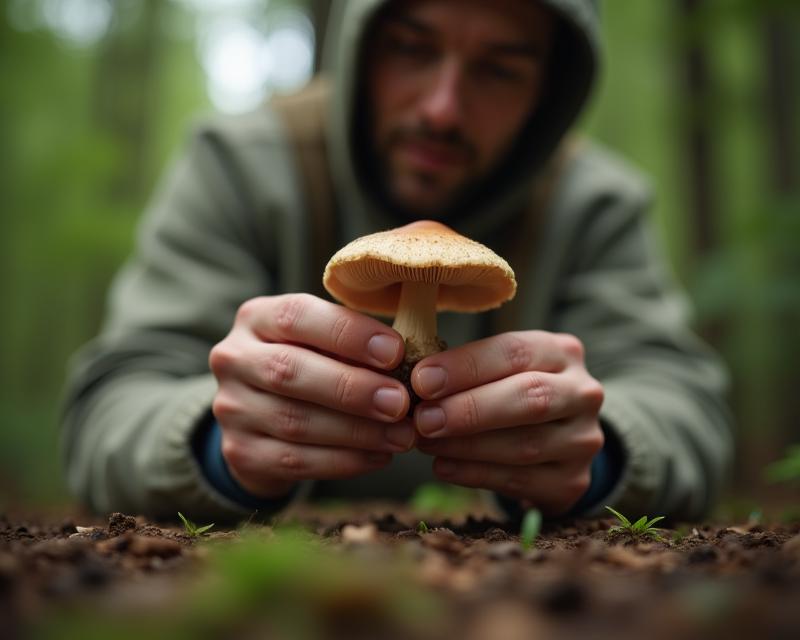Mushroom Safety: Know Before You Forage!
Publish in Sustainable Farming el 21/07/2025 01:03
Mushroom Safety: Know Before You Forage!
Mushrooms are fascinating additions to any farm or garden, offering potential benefits as food, soil amendments, and even natural pest control. But before you start foraging, it's absolutely crucial to understand the difference between edible and poisonous mushrooms. Misidentification can lead to serious illness, and sometimes even death. This guide provides essential information and resources to help you safely explore the world of fungi.

Why is Identification So Important?
The fungal kingdom is vast and diverse, with countless species. Many edible mushrooms have poisonous look-alikes. Even experienced foragers occasionally make mistakes. Some of the deadliest mushrooms resemble common edible varieties, making accurate identification paramount. Never eat a mushroom unless you are 100% certain of its identification. When in doubt, throw it out!
Essential Field Guides and Resources
Starting your mushroom identification journey requires reliable resources. Here are some recommended options:
- Books: "All That the Rain Promises and More" by David Arora is a classic and highly recommended resource for North American mushrooms. For a more concise guide, consider "Mushrooms Demystified" by David Arora. Local mycological societies often publish excellent regional guides.
- Apps: Apps like Mushroom Observer and PictureThis can be helpful for initial identification, but *always* cross-reference with multiple sources and expert opinions. Don't rely solely on an app!
- Websites: The Mushroom Expert website (mushroomexpert.com) is a comprehensive resource with detailed descriptions and photos. Your local university extension office may also have helpful information.
Avoiding Deadly Mistakes
Here are some key rules to follow for safe mushroom foraging:
- Learn the Deadly Ones First: Focus on identifying the most poisonous mushrooms in your region. Knowing what to avoid is just as important as knowing what to eat.
- Spore Prints are Your Friend: A spore print can help differentiate between species. Place a mushroom cap, gills down, on a piece of paper (dark and light) and cover it with a bowl overnight. The color of the spores will provide a clue to the mushroom's identity.
- Habitat Matters: Pay attention to where the mushrooms are growing. Some species are associated with specific trees or soil types.
- Cross-Reference, Cross-Reference, Cross-Reference: Never rely on a single source for identification. Compare your findings with multiple guides and online resources.
- When in Doubt, Don't Eat It! This is the golden rule. It's better to be safe than sorry.
Connect with Experts
Consider joining a local mycological society. These groups often organize guided forays with experienced mushroom hunters who can teach you valuable identification skills. You can also consult with a local mycologist or extension agent for expert advice. They can help you identify mushrooms and ensure you're foraging safely. Remember, responsible foraging is about respect for nature and prioritizing your health and safety.





